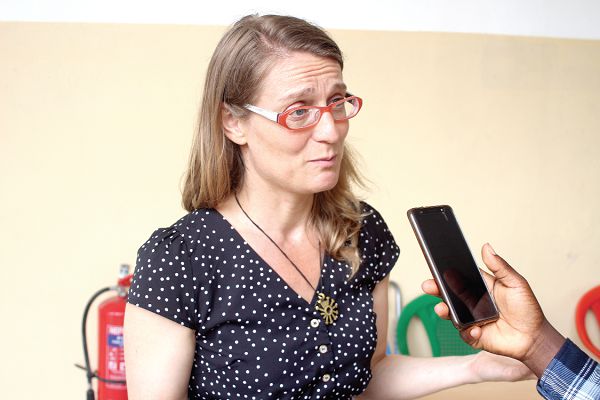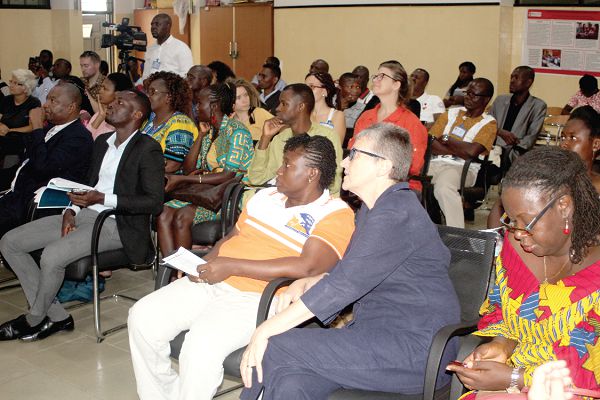
‘Conduct adequate research on hearing impairment’
An Associate Professor at the Centre for Linguistics in Leiden University in the Netherlands, Dr Victoria Nyst, has called for adequate research on the hearing-impaired community in Ghana to help develop helpful models that will allow people with hearing disability to obtain quality education.
According to Dr Nyst, the research should help the country gather relevant data to guide the development of special educative models that would help bridge the literacy gap between the hearing and the hearing impaired.
The Associate Professor said although Ghana had performed ‘considerably well’ in terms of extending formal education to the hearing-impaired, there was more to be done, particularly in the area of research, to establish what could be done to improve the model for people affected by hearing disorder and what could be done to help them adapt to universal trends with regard to communication.
“Sign language changes from one place to the other. If we want to offer quality education to the hearing-impaired, then there is the need for proper research so that we can develop good courses in line with the structure, grammar, and lexicon of Ghana’s sign language,” she said.
Conference

Dr Nyst made the call in an interview with the Daily Graphic in Accra last Saturday at a conference dubbed, “Deaf and hearing children in multilingual settings.”
The conference was part of a two-week vacation school at the University of Ghana’s (UG) Department of Linguistics for Africans with hearing impairment.
It was organised by the UG’s Department of Linguistics, in collaboration with the Centre for Linguistics in Leiden University in the Netherlands and sponsored by the Leiden Africans Studies Assembly (LeidenASA) also in the Netherlands.
Participants in the vacation school comprised tertiary students and graduates from Nigeria, Mali, Ethiopia and other African countries as well as members of the Ghana Association of the Deaf.
Hearing-impaired academics from selected countries, including the Netherlands and the United Kingdom, made worthwhile presentations in sign language to the admiration of the over 80 hearing-impaired participants in the conference
There were interpretors on stand-by to interprete the presentations to the undertanding of the few partcipants in the conference who were of normal hearing.
Hearing impaired academics needed
Dr Nyst, a Dutch academic, whose research interest include sign language, said the partnership between Leiden University and the UG was geared towards enhancing access to tertiary education for the hearing-impaired as well as contribute to producing more hearing impaired academics in future.
The Dutch lecturer who has conducted a study into sign language for Mali, observed that programmes and courses taught in many institutions in Africa were not designed to suit the understanding of the hearing-impaired, leading to their loss of interest in pursuing higher learning.
“Instead of people with normal hearing deciding for the hearing-impaired, we need more hearing impaired academics to help shape the future of young people who are hearing-impaired,” she said.
For her part, the Dean of the UG’s School of Languages, Professor Nana Aba Appiah Amfo, who is of normal hearing, said the UG would continue to support such conferences in line with its objective to promote interdisciplinary research.
Prof. Amfo said she was hopeful that the initiative would contribute to strengthening the good relationship that existed between the UG and Leiden University.
